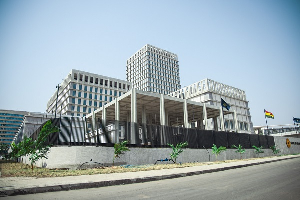Tamale, Jan. 28, GNA- As part of measures to enhance quality education in the country, the Ghana Education Service (GES) Council, has come out with a unified code of conduct for the personnel of the service to promote discipline.
The code is expected to guide personnel in the performance of their functions.
Mr Michael Nsowah, Acting Director-General of the GES, on Thursday announced these in a speech read on his behalf, at a sensitisation workshop on the unified code of conduct for GES personnel, in Tamale in the Northern Region.
He said the GES in establishing the code, took cognisance of the laws of the country, the norms, values and beliefs of the community and the rights of individuals, especially children and parents. District directors, assistant directors, headmasters and headmistresses, regional managers of education units, representative of Teachers and Educational Workers Union (TEWU) of the Trade Union Congress (TUC) and staff of the Northern Regional Education Office attended the workshop.
Mr Nsowah asked officials of the GES not to consider the code as a means to impose sanctions on offenders but as a way of encouraging personnel to have confidence and sense of direction in the discharge of their duties.
He, however, said any breach of rules and regulations as entrenched in the code would attract disciplinary action. He also said: "It is a misconduct for instance, for an employee to absent himself or herself from duty for 10 days without permission or reasonable excuse or cause".
Mr Nsowah explained that if the code would be strictly adhered to, the high incidence of indiscipline in schools and at workplaces would be reduced considerably.
"By the code, personnel of the GES are duty bound to maintain industrial harmony at workplaces to enhance productivity for the country to attain its economic goals," he said.
Mr. Chikpah K. Demuyakor, the Northern Regional Director of Education, said knowledge of the code would enable personnel to appropriately educate their subordinates on how to be abreast with rules, regulations and procedures, to enhance their participation in decision-making.
He said:" This will eliminate suspicion and fear among personnel in the service and create a peaceful industrial atmosphere for higher productivity". 28 Jan. 06
General News of Saturday, 28 January 2006
Source: GNA












